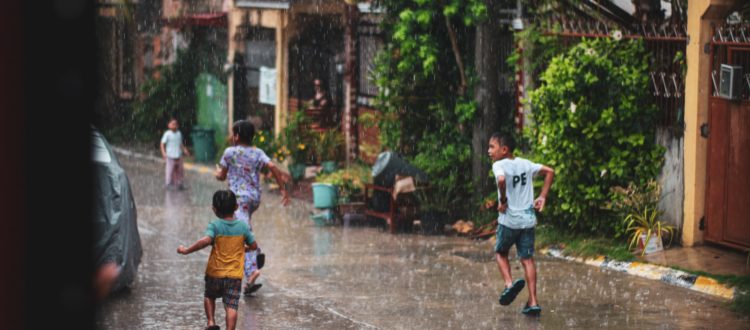CLIMATE CRISIS, CHILDREN’S RIGHTS AT RISK
The climate crisis is also an intergenerational crisis, exposing children and young people to the devastating consequences of wrong actions and policies of which they are not the authors. At COP26, the younger generation didn’t miss the opportunity to demand concrete commitments and action from governments around the world.
Children and young people are the real protagonists of this year’s COP. After the Youth4Climate event held in Milan in the past weeks, they are now present in Glasgow to influence the decision-making processes that affect their future and that of us all. On stage at the side event organized by UNICEF “The Climate Crisis – A Child Rights Crisis” were government representatives from Mexico, the Netherlands and Jamaica, and three young climate activists from Nigeria, Pakistan and Trinidad and Tobago. An unusual composition in the political-institutional field, but one that became good practice at this year’s Conference of the Parties for a more inclusive process that sees young people at the forefront of climate action.
While not responsible for the climate crisis, children and younger generations are among those the most affected by the negative effects of global warming, particularly if they belong to minority groups or come from countries most exposed to the dramatic consequences of rising temperatures. UNICEF Executive Director Henrietta Fore said that “the climate crisis is a crisis for children’s rights.” Citing data from the Children’s climate risk index, she pointed out that the climate crisis poses an unprecedented threat to children and youth. More than 99% of them have already been exposed to at least one environmental or climate shock, and about 1 billion children are exposed to very high risks related to climate change. “Children bear the brunt of this crisis,” he continued, “but they are not passive victims. We have seen in recent months how they have mobilized themselves energetically as agents of change”.
At COP25 in Madrid, YOUNGO, the group representing all young leaders and youth organizations around the world, submitted to governments the “Children, Youth and Climate Action Declaration” calling for the acceleration of the adoption and implementation of more inclusive climate policies and actions, centred on the rights of children and adolescents, and born from the involvement of young people in decision-making processes. To date, only 29 governments have signed the declaration – Among many nations, Italy is missing. “I am surprised that such a small number of countries have signed this declaration. Every country should do so,” said former High Commissioner for Human Rights Mary Robinson.
Political processes determine our future and that of our planet. Young people are asking to participate in a meaningful way in decision-making processes, as a matter of justice and intergenerational equity. Several proposals emerged from the event, such as the inclusion of young people in government delegations to the COP, but also in decision-making processes at the national level with a dedicated space at the negotiating table. In addition, the creation of youth councils and the organization of periodic meetings between governments and representatives of associations and youth groups are other possibilities that strengthen a model of participation based on the empowerment of the younger generations. Among the most interesting proposals we find climate education, which remains the key to understanding the crisis we are facing. To date, only 59% of NDCs refer to the educational sector and, according to a UNESCO report, out of more than 100 countries analysed, in 53% of cases school curricula make no reference to climate change, with about 60% of teachers who do not feel able to explain the phenomenon to their students. Alarming data according to the panellists.
It is time to understand the urgency of moving from commitment to concrete action and implementation of solutions that already exist and are available. In this process, human rights must remain the beating heart of climate action. In support, the current High Commissioner for Human Rights, Michelle Bachelet, concluded the event by stating “Climate actions must be guided by the principles enshrined in the Convention on the Rights of the Child. The principle of the best interests of the child must be at the centre of every policy.”
by Michela Lonardi, Italian Climate Network Volunteer at COP26

